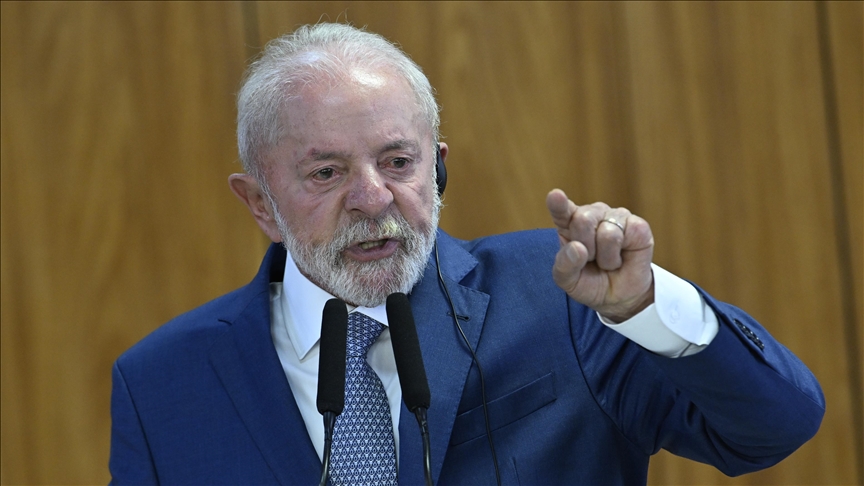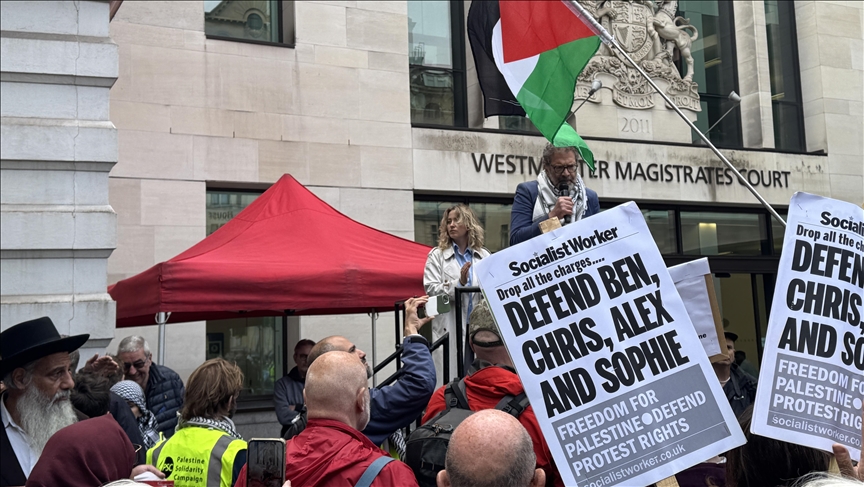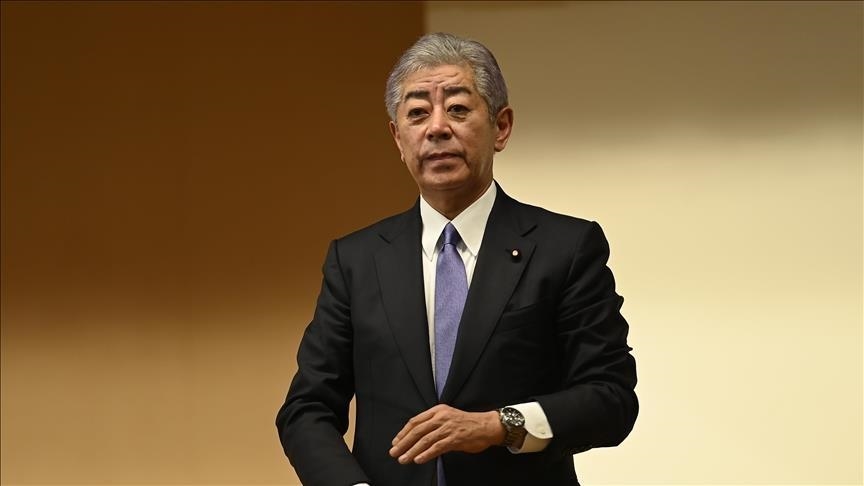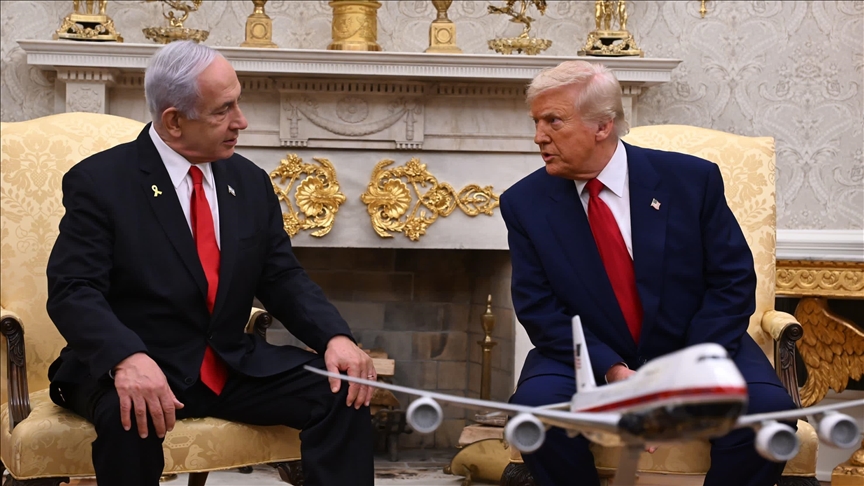New trade tariffs unveiled by US President Donald Trump on Wednesday are expected to have a major global impact, and have been condemned by the European Union and other key US allies.
But Trump's latest import taxes may get a different response in China, whose leader could see them as a gift.
Here, BBC reporters in five major economies look at the nuances of how the announcements are being received where they are.
Europe could hurt US, but doesn't want to escalate
By Katya Adler, Europe editor in Brussels
European Commission chief Ursula von der Leyen spoke on behalf of all European Union (EU) countries when she said the new tax imports would cause "dire" consequences for millions of people around the globe.
She said there was "no clear path through the complexity and chaos" that the new tariffs would unleash worldwide.
But the Commission has promised to protect EU businesses, some of which will be more hard hit than others - like Germany's car industry, Italy's luxury goods and France's wine and champagne producers.
French President Emmanuel Macron has called an emergency meeting of French business leaders later on Thursday.
As the biggest single market in the world, the EU can hurt the US - targeting goods and services, including 'big tech' like Apple and Meta with counter-measures.
But it says its aim is not to up the ante here – it's to persuade Trump to negotiate.
On Wednesday night, Italian PM Georgia Meloni said that while she considered the tariffs wrong, everything would be done to try and reach an agreement with the US.
Tariffs a gift for Chinese leader
By Stephen McDonell, China correspondent in Beijing
A 54% tariff hit on Chinese goods entering the US is certainly huge and will no doubt hurt Chinese companies trying to sell into that market.
Beijing's countermeasures will also hurt US companies trying to reach the massive Chinese market.
But, in one way, these moves from Trump are also a gift to Chinese President Xi Jinping.
Xi is portraying his country as a champion of free trade, a backer of multilateral institutions, and making comparisons with the world's other superpower which is seen as trashing both of these.
Just last week, China's leader was sitting down with chief executives from big international corporations – including many from Europe – and the imagery was clear. The US under Donald Trump = chaos, trade destruction, national self-interest. China under Xi Jinping = stability, free trade, global cooperation.
The Chinese government has already mobilised its state media sector to attack this latest round of tariffs from the Trump Administration.
People may quibble with the Chinese Communist Party's reading of where the world sits, but every time Trump takes measures like these, it makes Xi's sales pitch easier to deliver.
And economic necessity may draw many countries closer to China and further from the US.
Some relief but no delight in UK
By Chris Mason, BBC political editor in London
Folks in government here had picked up a sense of the mood music – a sense that the UK was "in the good camp rather than the bad camp" as one figure put it to me – but they had no idea in advance what that would mean exactly.
But now we do know - a 10% tariff on the UK's exports to the US.
I detect a sense of relief among ministers, but make no mistake - they are not delighted. The tariffs imposed on the UK will have significant effects, and the tariffs on the UK's trading partners will have a profound impact on jobs, industries and global trading flows in the weeks, months and years to come.
It will be "hugely disruptive," as one government source put it.
There is an acute awareness in particular about the impact on the car industry.
Negotiations with the US over a trade deal continue. I am told a team of four UK negotiators are in "pretty intensive" conversation with their US counterparts – talking remotely, but willing to head to Washington if signing a deal appears imminent.
India fears impacts - but some sectors have hope
By Nikhil Inamdar, India business correspondent in Delhi
Asian economies are among the hardest hit by Trump's new tariffs. Americans will have to pay a 46% tax on imported goods from Vietnam, and 49% for goods from Cambodia.
Relatively speaking, India has fared better.
But a 26% across-the-board tariff rate is still steep, and will severely affect major "labour-intensive exports", says Priyanka Kishore of the Asia Decoded consultancy.
"That will likely have a knock-on impact on domestic demand and headline gross domestic product(GDP)" at a time when growth is already stuttering, according to Kishore.
But India's electronics exports may potentially benefit as higher tariffs on rivals such as Vietnam could leads to the re-routing of trade.
That is unlikely to mitigate the overall negative growth impact of Trump's salvo though.
Unlike Canada, Mexico or the European Union, India has so far adopted a conciliatory approach to Trump and is negotiating a bilateral deal with the US. Whether this triggers a retaliation in Delhi, will be very closely watched.
The pharmaceutical industry - which accounts for India's largest industrial exports at some $13bn (£9.9bn) annually - will be breathing a sigh of relief, however, as medicines are exempt from these "reciprocal" tariffs.
South Africa hits out, as continent reels from aid cuts
By Wycliffe Muia in Nairobi
Trump's "reciprocal tariffs" are targeting dozens of African countries, including 30% for South Africa and 50% for Lesotho.
Many of these nations are already grappling with the effects of US foreign aid cuts, which provided health and humanitarian assistance to vulnerable countries.
South Africa - like some of the continent's other biggest economies including Nigeria and Kenya - has long had open trade agreements with the US, and the new tariffs could significantly affect existing economic ties.
It is included in the long list of countries dubbed the "worst offenders" that now face higher US rates - payback for unfair trade policies, Trump says.
"They have got some bad things going on in South Africa. You know, we are paying them billions of dollars, and we cut the funding because a lot of bad things are happening in South Africa," he said, before going on to name other countries.
In a statement, the South African presidency condemned the new tariffs as "punitive", saying they could "serve as a barrier to trade and shared prosperity".
Source: BBC










